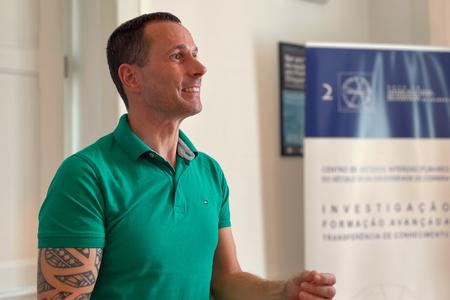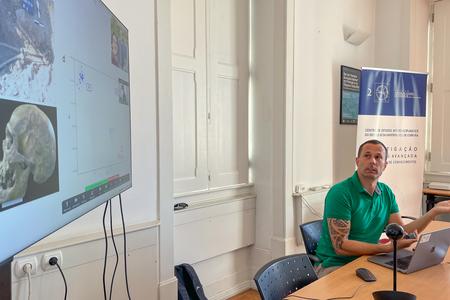18 de abril | 14h30 | Sala de Seminários, CEIS20
Bastien Llamas, Professor Associado da Universidade de Adelaide, Austrália, especialista em genómica e paleogenómica, é o próximo convidado para os Eixos do Conhecimento Interdisciplinar – Ciclo de Palestras do Doutoramento em Estudos Contemporâneos (DEC), com a comunicação intitulada “Promises and pitfalls of paleogenomic research".
A sessão será ministrada em inglês e será igualmente transmitida através da plataforma Zoom.


Bio
Assoc. Prof. Bastien Llamas is an expert in genomics and paleogenomics. He investigates a range of molecular mechanisms that facilitate human adaptation to diverse environmental and cultural stressors. His research sits at the interface between population history and personalised genomics, with a strong focus on improving genomic data and human resources to the highest standards required to enable Indigenous inclusion in paleogenomics and genomic medicine. He intends to combine a range of advanced analytical methods (e.g., target enrichment by DNA hybridisation, high-throughput DNA sequencing, long-read DNA sequencing, genome graphs) to integrate past and present Indigenous genetic diversity into a global human pangenome reference, as well as to assess the relationship between peoples and places through time.
Abstract
Paleogenomics is the study of genomic information retrieved from historic or long-dead organisms. While the analysis of ancient, degraded DNA is technically challenging, recent methodological improvements have pushed the limits in terms of scale and scope; nowadays, paleogenomic research often addresses very broad questions such as the initial peopling of continents by humans and subsequent demographic events, the population history of extinct and extant species, the reconstruction of past biomes to infer environmental and human impacts, or the co-evolution of hosts and pathogens. Beyond landmark studies that benefited from the time-travelling properties of ancient DNA, frontier paleogenomic work pushes the boundaries of evolutionary biology and ecology even further. Are the prospects promising or concerning?

